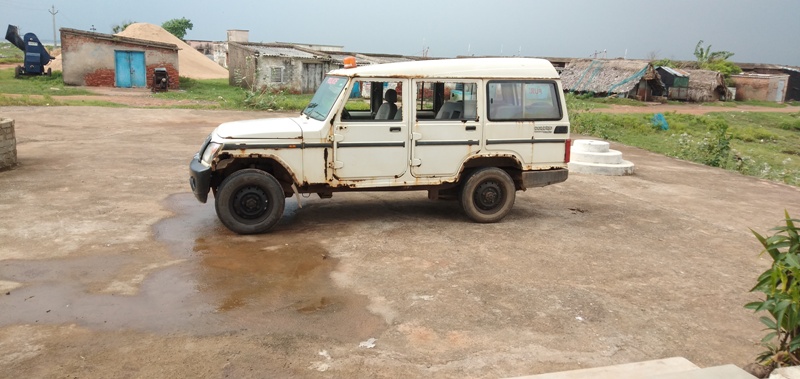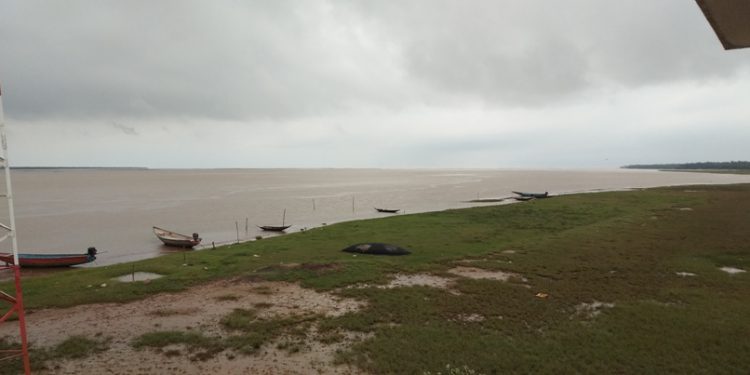Even though the government claims that it puts utmost importance on coastal security, especially after heightened threat of underwater terror attack, it appears that all is not well with the marine police stations of the state. A ground report by Gyan Ranjan Mohapatra focuses on how these police stations are grappling with a severe manpower crunch and crippling infrastructure.
Bhubaneswar: The Centre came up with the Coastal Security Scheme in 2005 to thwart illegal activities like arms/drugs smuggling and infiltration through the coast and illegal fishing activities. As per the scheme, Indian Navy is responsible for surveillance on high seas while the Indian Coast Guard keeps a close watch on territorial waters. Also, under the scheme, the Centre had sanctioned 18 marine police stations to help maintain vigil in areas close to shallow waters, up to 12 nautical miles. Odisha Police is responsible for periodic assessment of these police stations.
The primary aim of the scheme, which was implemented in two phases, is to enhance infrastructure, sensitise fishermen community to keep vigil on any outside intrusion into Indian waters.
Odisha being a coastal state with 487-km long coastline is prone to many illegal activities including terrorist infiltrations. Out of 18 marine police stations (MPSes), established in 2015, four were set up in Puri, which has always been in the hit list of the ultras. These four MPSes in Puri are: Astaranga, Chandrabhaga, Penthakata and Arakhakuda.
A field visit by this reporter exposed the sorry state of affairs at these MPSes which have virtually turned into gateways on the coasts as the cops deployed there were found relaxing instead of remaining in the state of alertness. The staff at these MPSes can be seen lazing around all the day.
Moreover, all the four MPSes in Puri district have been grappling with dearth of adequate manpower, infrastructure, basic amenities, boats, arms and ammunition. Sources said none of the cops in these MPSes are trained in coastal patrolling.

Infrastructure woes: Although Odisha Police received crores of rupees from the Centre to construct MPS buildings along with barracks, staff quarters and other infrastructure, the four police stations in Puri only have MPS buildings. Barracks and staff quarters are still a far cry. The hazats, armoury, malkhana and tool rooms were found to be used as personal rooms of the staff with cots and mosquito nets, water pots and kitchen utensils inside them. Some of the MPSes lack extra toilets for the staff, forcing some of the cops to go outside to answer the nature’s call.
This apart, only one fast interceptor boat is available with Astaranga MPS while Chandrabhaga and Penthakata stations have none to conduct patrolling on the coast. Some of the staffers of Arakhakuda MPS informed OP that one such boat is available at Satapada as no facility for the use of the boat like jetties is available at their station.
Guidelines mandate 150 hours of monthly patrolling by the MPS staff. However, the locals claimed that the police officials, along with the trained navy staff, hardly conduct any patrolling on the coast.
“The jetty constructed at Astaranga has also been damaged while the work for the new one is yet to begin,” one of the staffers at the MPS said.

Krushna Chandra Behera, a fisherman of Arakhakuda, said, “We have never seen them (the MPS personnel) conducting patrolling. They mostly stay inside the police stations. Once in a year some navy officers come here and talk with us about the various security-related issues.”
Similarly, as per data, funds have been sanctioned for 23 four-wheelers and 41 two-wheels for 18 MPSes in the state. However, one can spot vans lying in poor condition at these police stations in Puri. No two-wheelers are available at these police stations. A CAG report in 2015 found that the vehicles sanctioned for MPSes were being used in activities ‘other than marine policing’.
Besides, computers and other equipment can be seen kept idle at these police stations.
Manpower crunch: These MPSes have been grappling with serious shortage of manpower. Arakhakuda station has just four policemen (one each from Inspector, ASI, Constable and Havildar ranks) and seven home guards.
Similarly, Chandrabhaga MPS has a sanctioned strength of one IIC, six SIs, six ASIs, 16 havildars and 18 constables. However, the staff strength at this station is only eight – one ASI, one havildar, one inspector – who has been managing the Ramachandi police station.
The Astaranga MPS has only three constables, one inspector, SI and ASI each.
Similarly, there are 12 police staffers including home guards deployed at the Penthakata MPS against the sanctioned strength of around 80 staff for the MPSes.
As per rules, each MPS has been provided with 22 ex-servicemen of different ranks to operate the boats (six per boat). However, there are only four/five ex-navy staff deployed at Astaranga and Arakhakuda while none has been deployed at Penthakata and Chandrabhaga.
Lack of training: The SOP regarding MPSes clearly mentions that the police staff should also be trained in sea patrolling by the Indian Coast Guard. Some staffers of these police stations revealed that although a few trained staffers were deployed during the initial period, now they have either been transferred or superannuated.
Meanwhile, the Coast Guard authorities recently revealed through an RTI reply that no training has been imparted to the Odisha police personnel from 2015 to 2018.
Biometric identity card: In a bid to keep tabs on infiltrators, the state government had in 2017 made biometric identity cards mandatory for fishermen involved in offshore and deep-sea fishing.
As per the norms, all the fishermen venturing into the sea should be provided with waterproof biometric identity cards. A total of 3,46,948 fishermen had been identified for availing the cards and photographs of 3,45,649 fishermen were taken. However, precious little has been done so far to prepare the cards for all the fishermen.
“Photographs of around 200 fishermen have been taken for the cards more than a year ago, but only 50 of them have received the cards,” said Surendra Kumar Mallick, a fisherman of the locality.
One of the staffers at Penthakata MPS also informed OP that they have hardly seen any senior police officer like IG or ADG of visiting the police station.
When contacted, coastal security ADG Pranabindu Acharya said that they would leave no stone unturned to address the lacunae in marine policing, including manpower and infrastructure issues, at the earliest.
“The DGP has asked the IG, DIG and SPs to visit marine police stations at least once a month to ensure their proper functioning. Besides, IICs of marine police stations will be asked to intensify sea patrolling in their jurisdiction,” the senior IPS added.






































